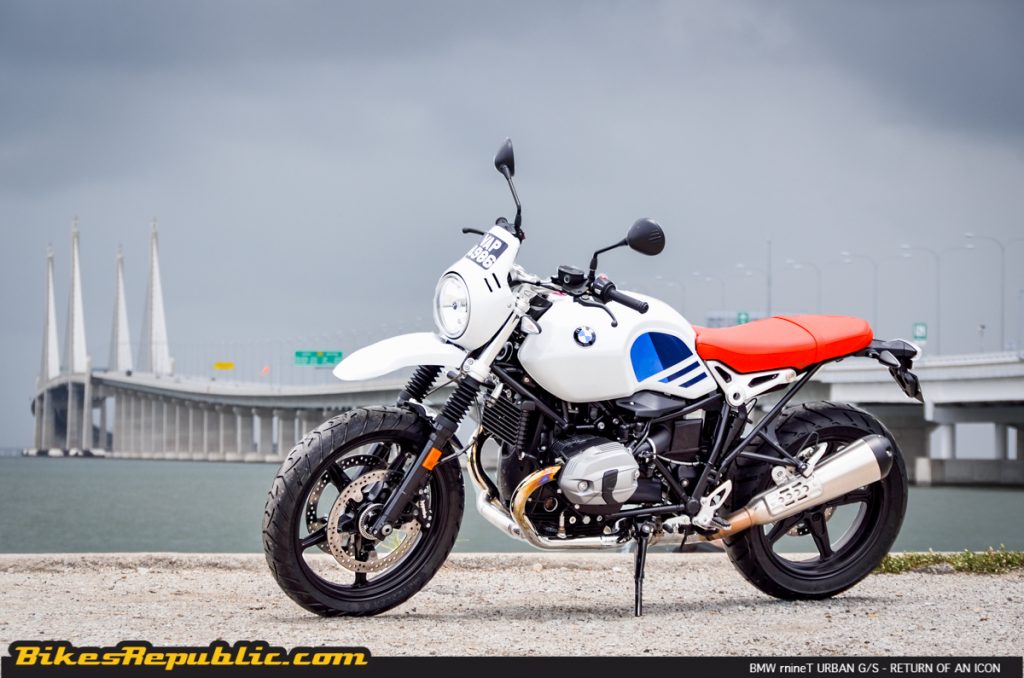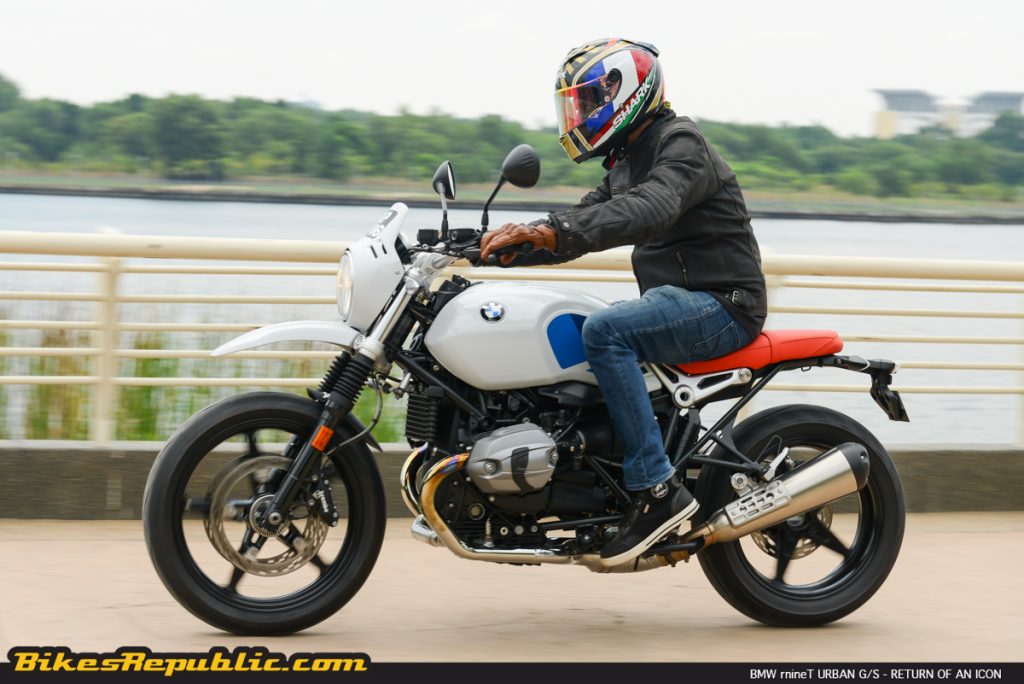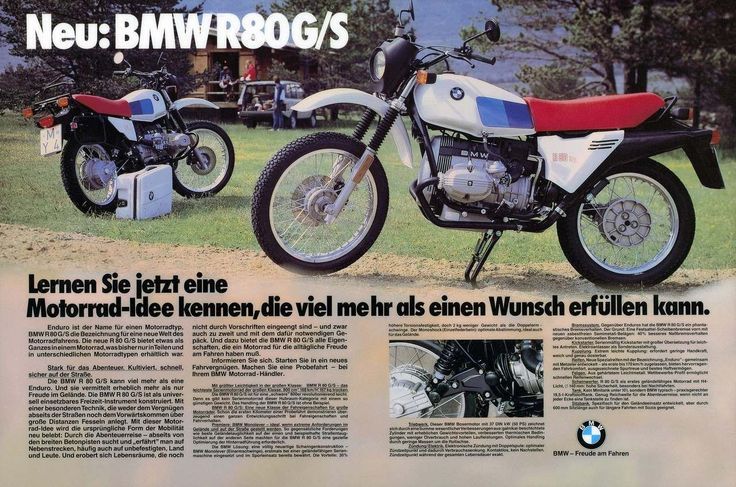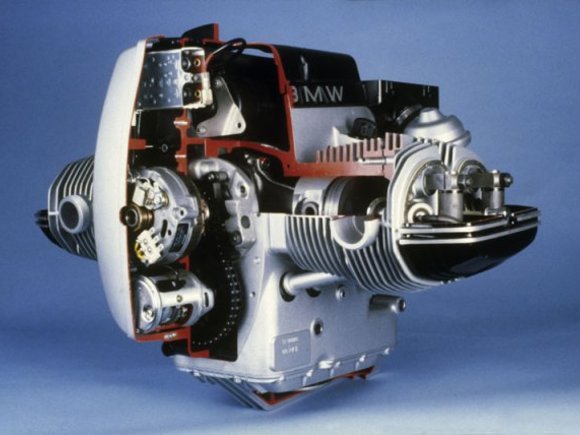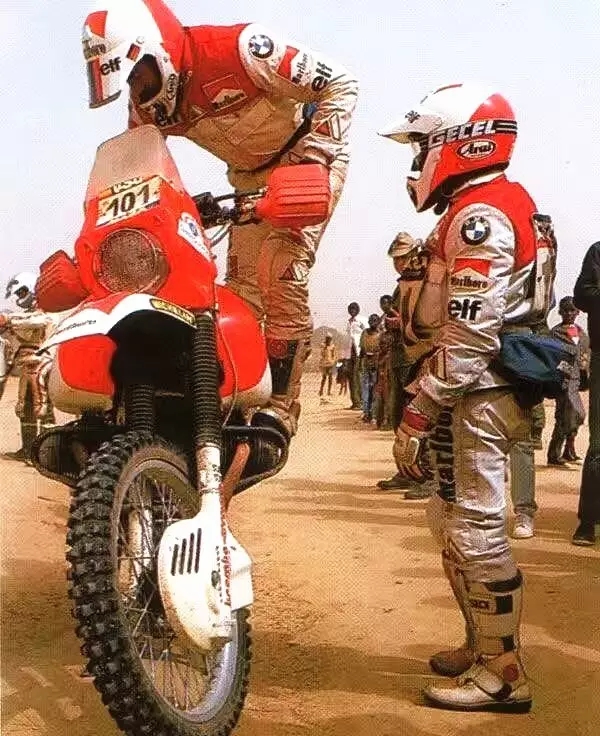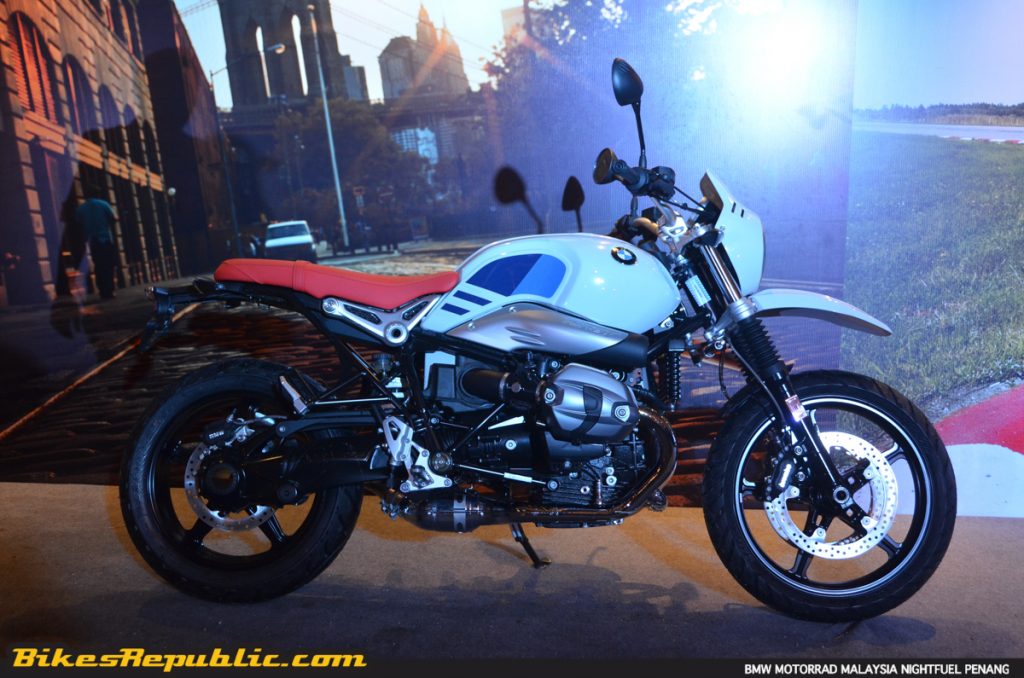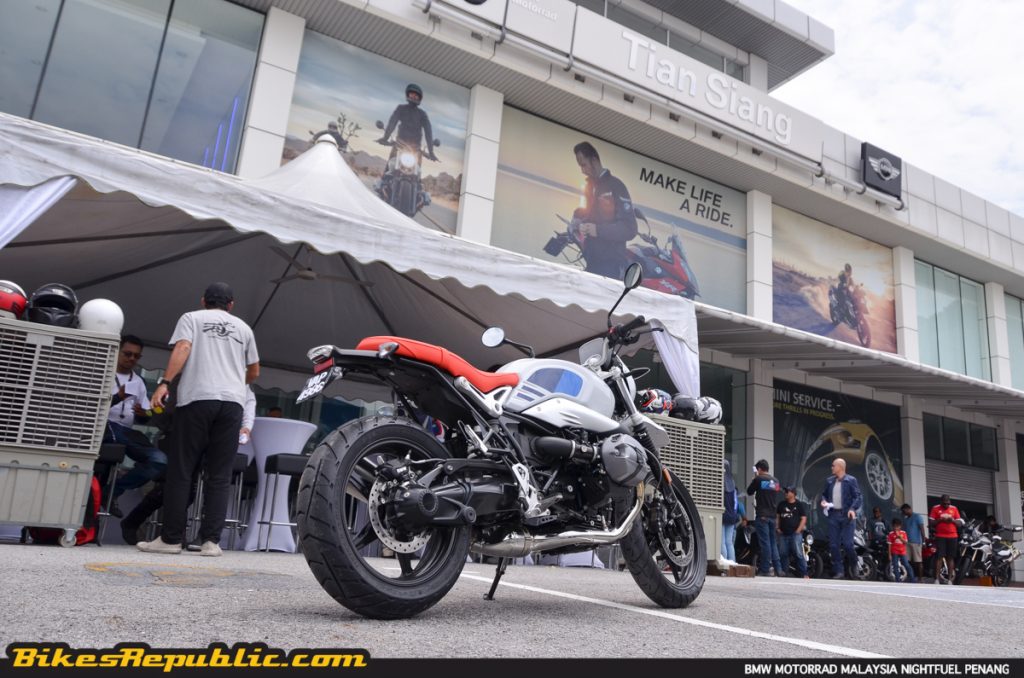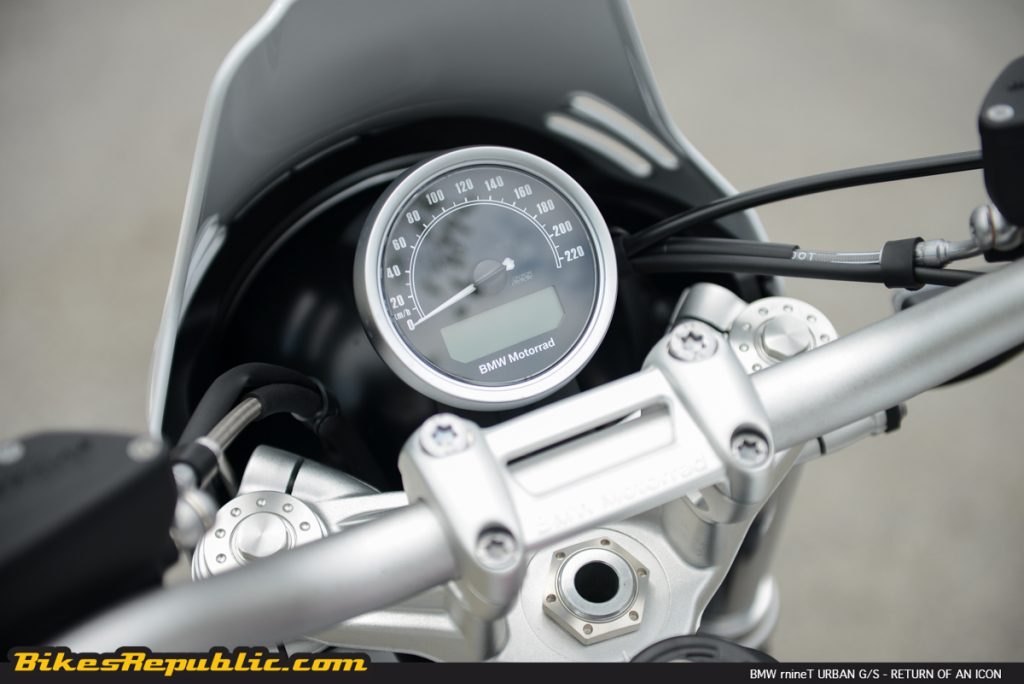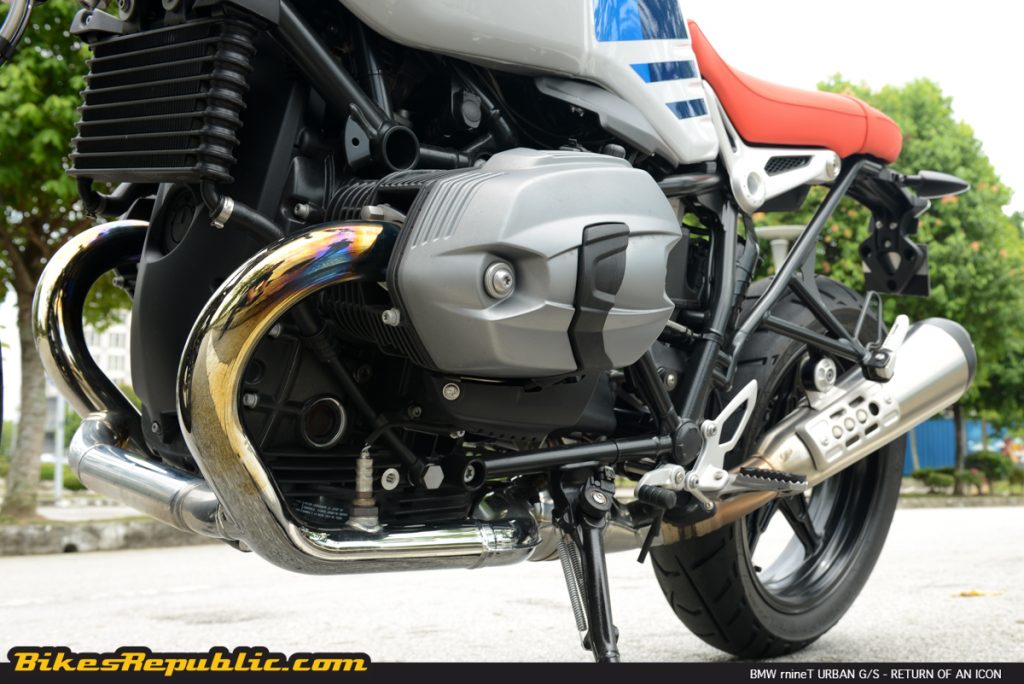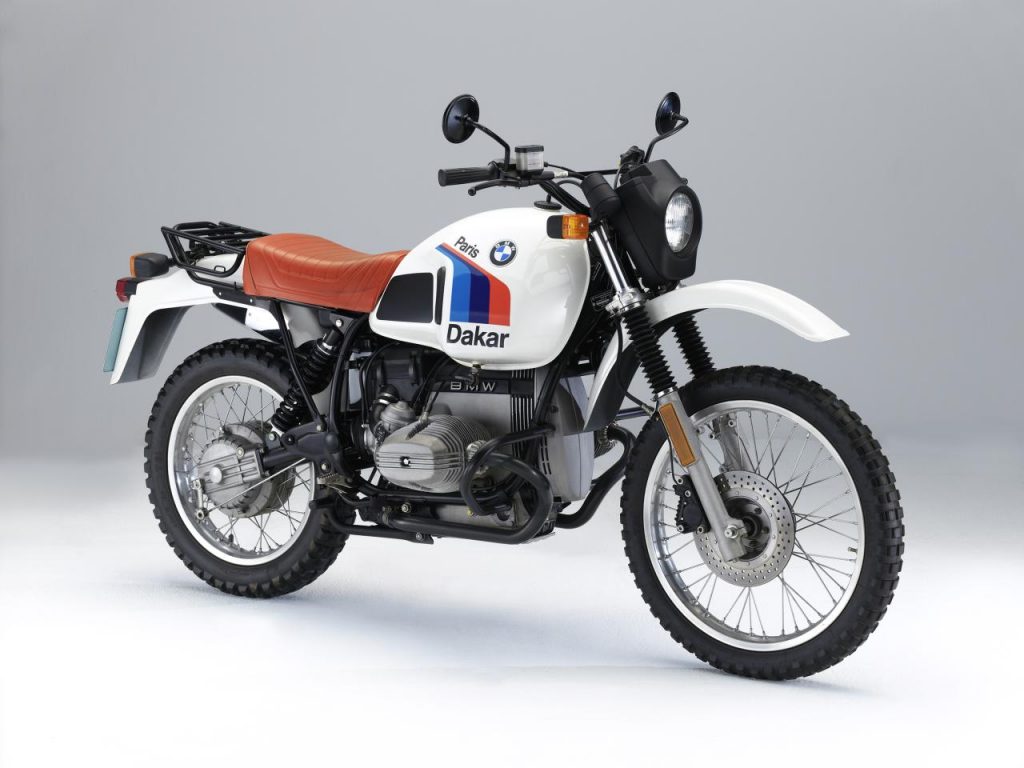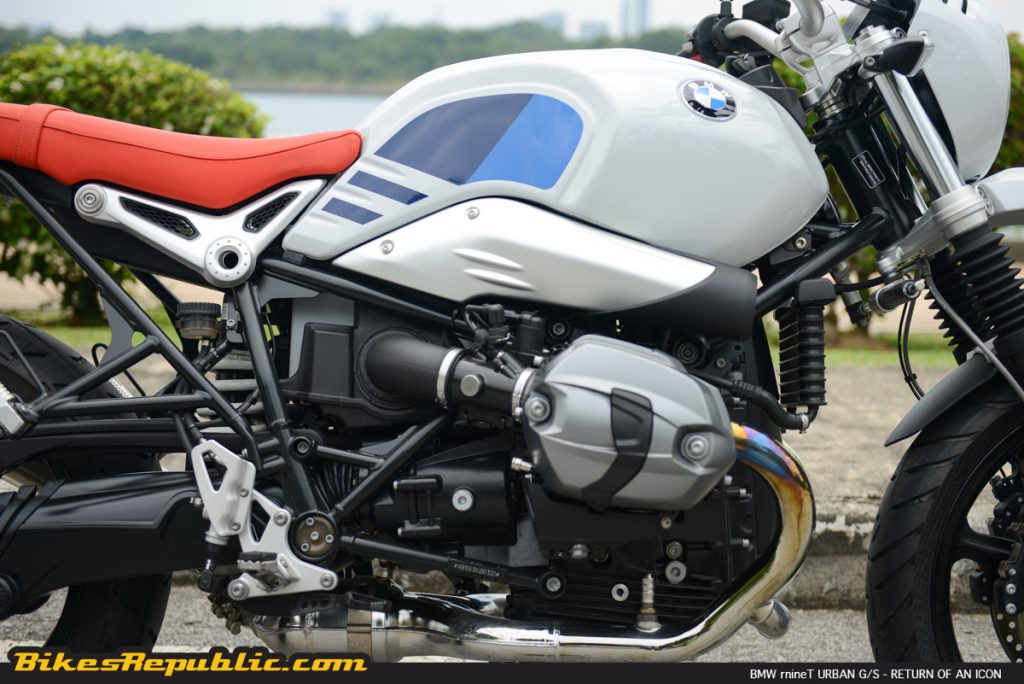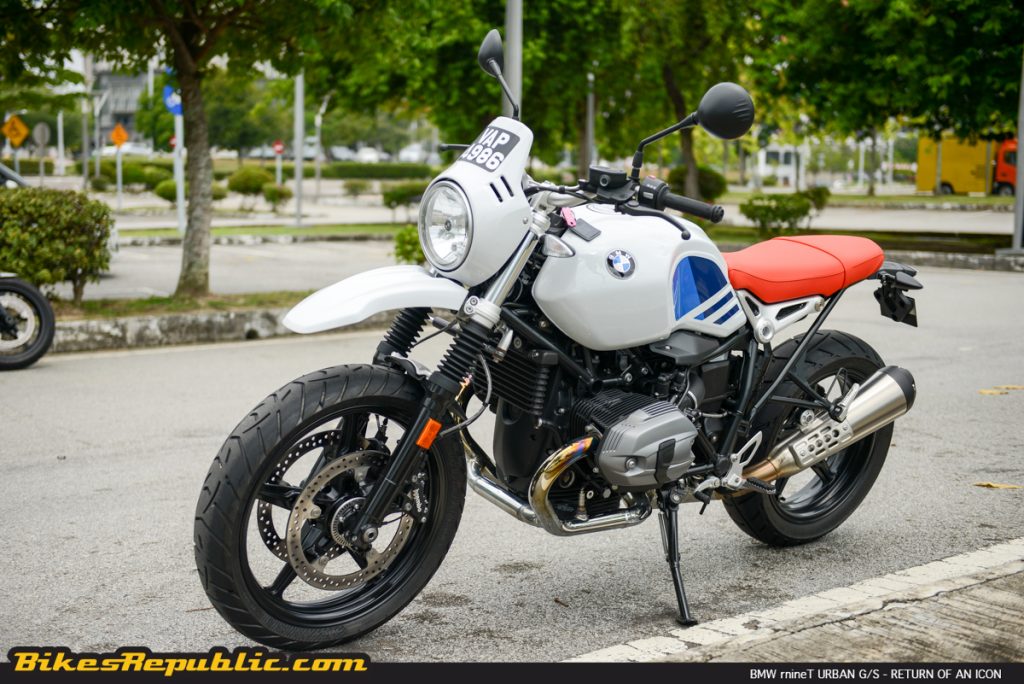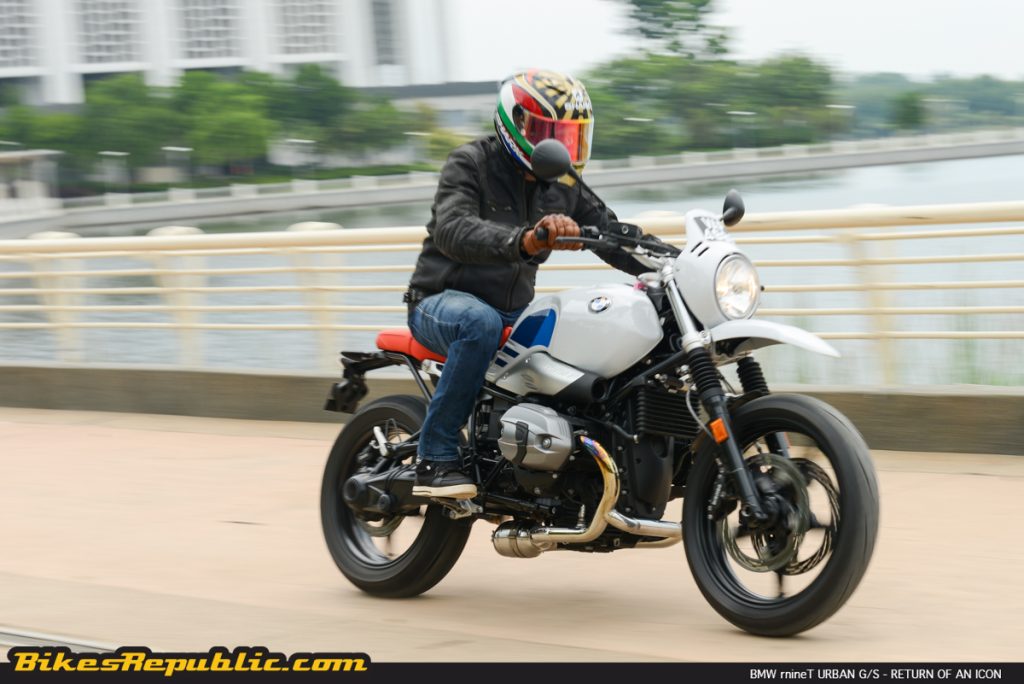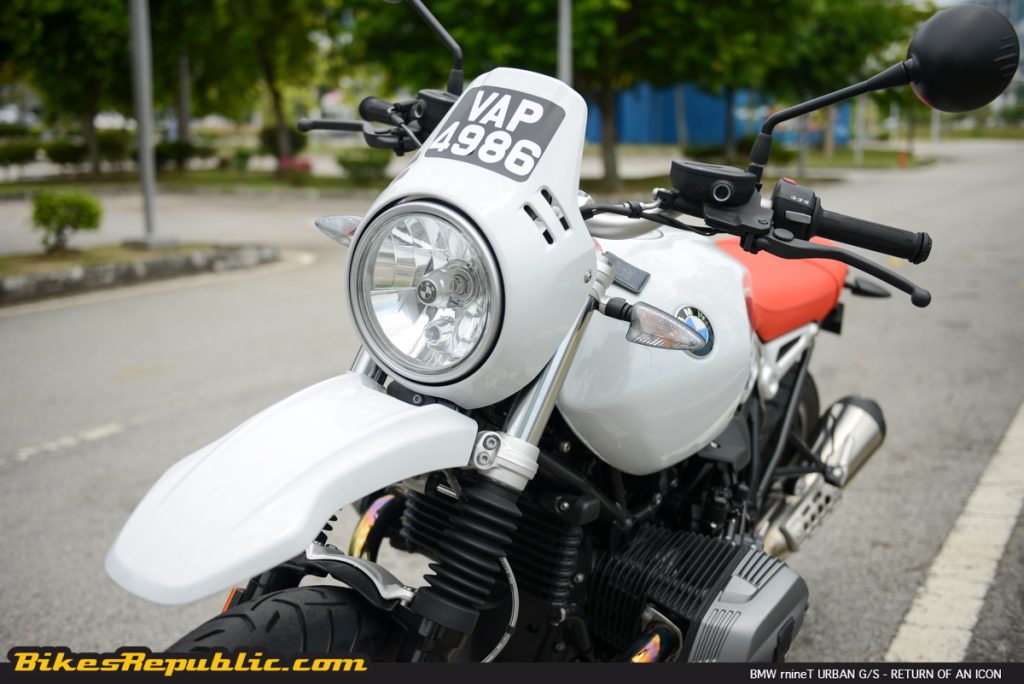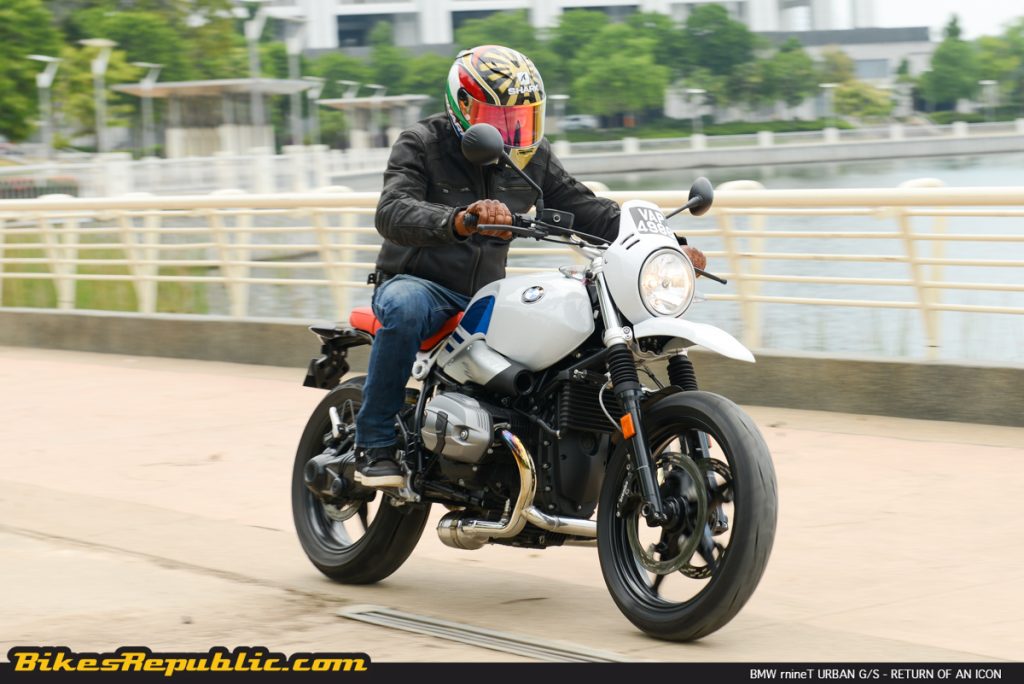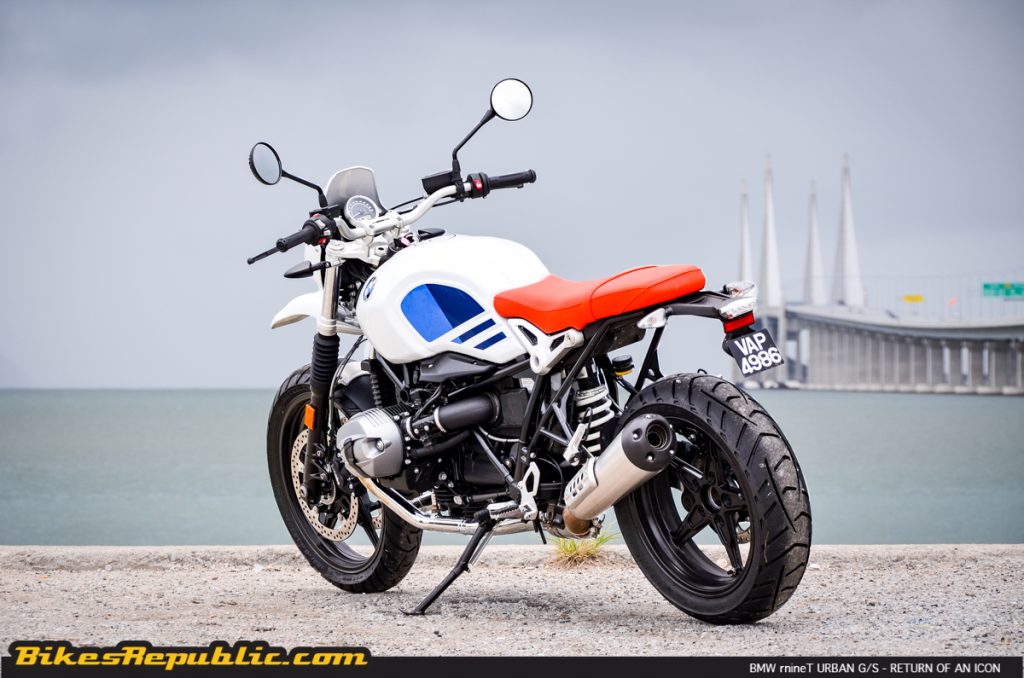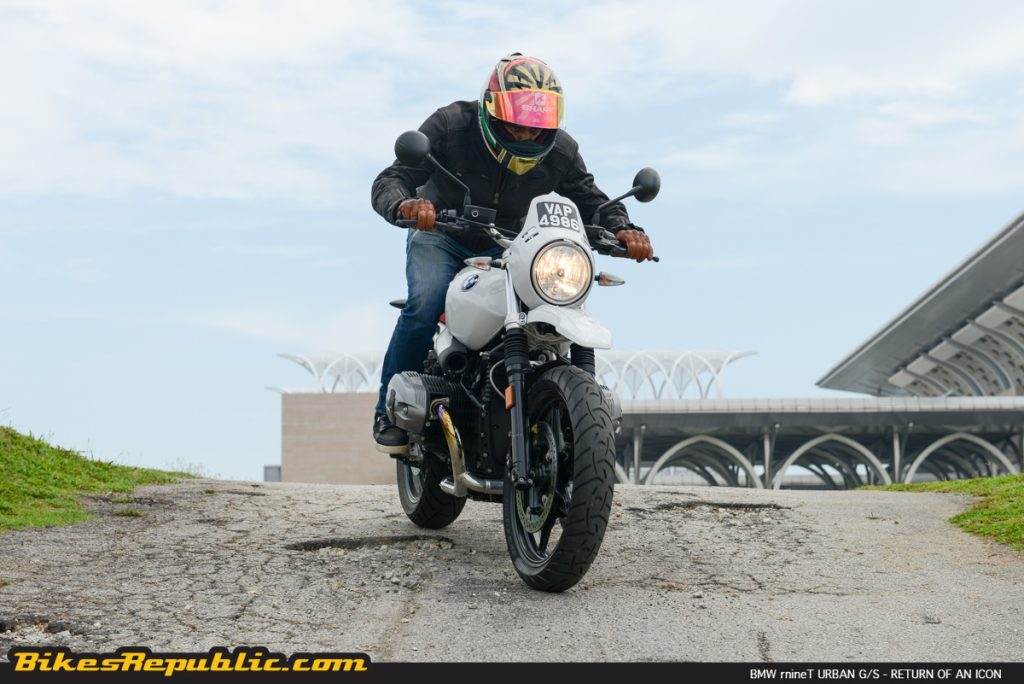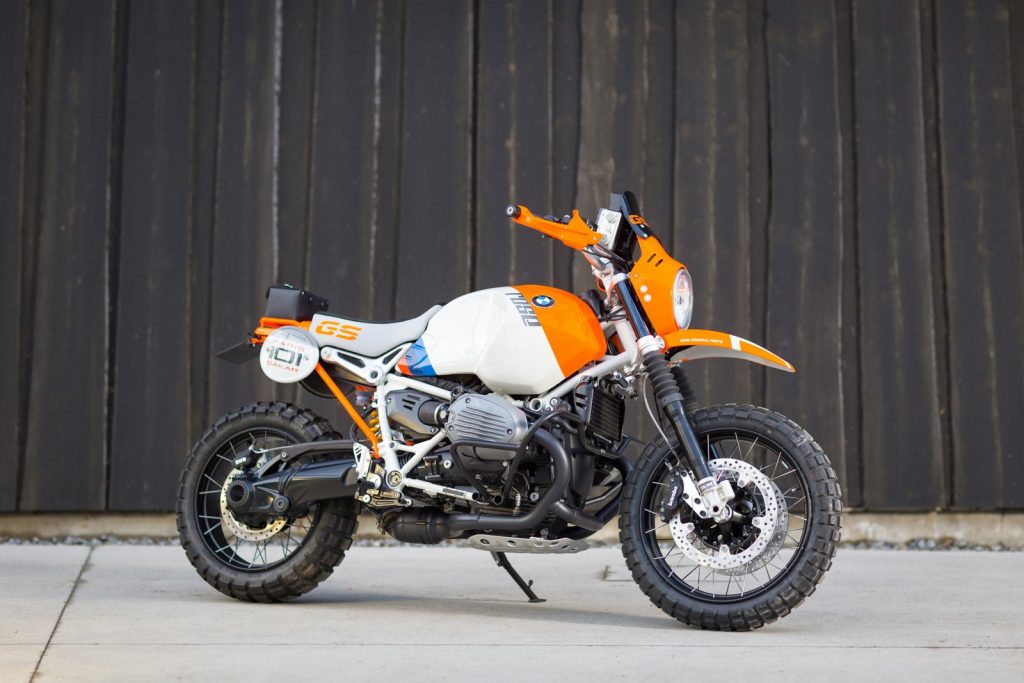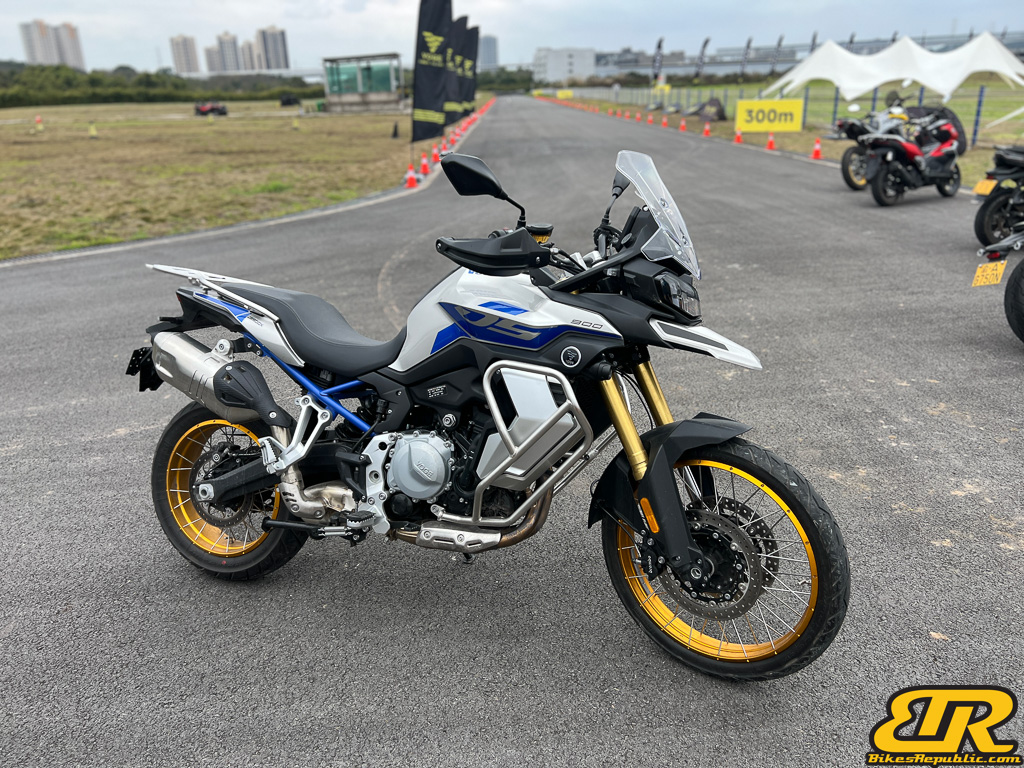-
The BMW R nineT Urban G/S is based on the rnineT platform
-
It harks back to the iconic R80G/S which won four Paris-Dakar Rally races
-
Accessibility, practicality and unconventional styling are its key points
“Wahid,” said Shaz in her sweetest voice, “You need to work on article about adventure riding.” That made the office lights turn in circles around me. Sure, I’ve ridden off-road and attend motocross training at Oh Kah Beng’s Most Fun Gym (MFG) from time to time, but to write about it was something else.
But lo’ and behold, a little research unearthed a whole treasure throve of amazing stories regarding the Paris-Dakar Rally.
This legendary rally raid event (now Dakar Rally or just The Dakar, and had moved to South America from Africa) which started in 1979 features classes for motorcycles, quads (ATVs), cars and trucks.
The Dakar isn’t quite like the type of rally we’re used to seeing in the World Rally Championship (WRC) where the competitors fly through 2km-long Special Stages (SS) to stamp the fastest time.
Oh no. Compared to The Dakar, WRC looks like a kiddy kart ride on the rooftop of a shopping mall.
The Dakar required competitors to cover 800 to 900 kilometres per day in tough conditions. Less than 30 percent consists of road stages, while the rest are offroad – crossing over dunes, mud, camel grass, rocks and a whole bunch of other terrains that are difficult to even walk on, plus who knows of dangers the desert lie in wait for the unfortunate soul. There were even competitors who vanished without a trace. The total distance over the rally ran up to 10,000 kilometres. To finish is akin to winning in itself.
It didn’t come to be called The World’s Toughest Rally for nothing.
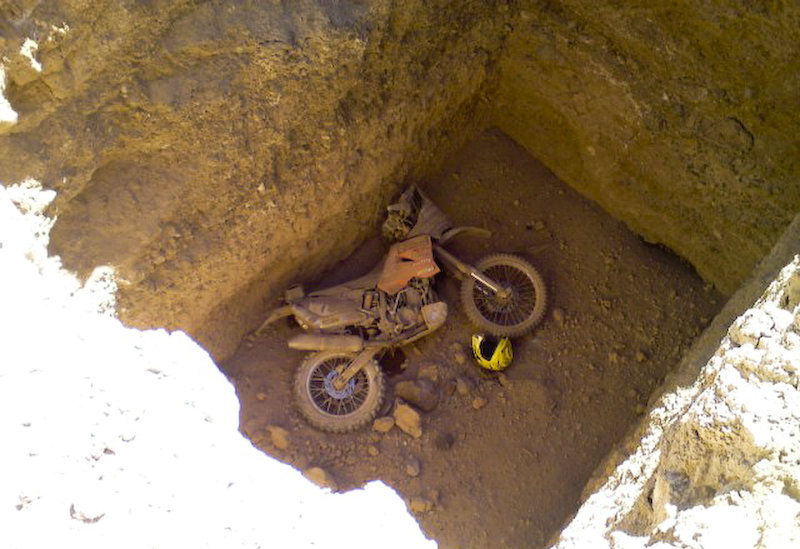
Anyway, as I scrolled through the long list honours, two particular letters jumped out at me. “G” and “S”. More specifically, “BMW R80G/S.”
You see, motorcycles of the time were divided clearly into their respective roles; it was either fully road-going or off-road. The road-going motorcycles offered touring capabilities such as longer range, ability to haul luggage, and comfort for two. On the other hand, if you wanted a motorcycle that could handle Alpine dirt paths, desert tracks, sandy roads or the forests, it’s one which was stripped out of all the touring accoutrements. There was nothing in between.
BMW Motorrad made the bold decision to fill this void with a motorcycle that could do it all. The Reiseenduro (touring enduro) segment was born. (Reise means “a change of location” in German, while duro means “to endure” in Spanish.)
To cut a long story short, BMW Motorrad presented the R80G/S to the world press in Avignon, France on 1st September 1980. The “G/S” moniker stands for Gelände/Straße (off-road/road). BMW Motorrad promoted the R80G/S with the phrase, “Sports machine, touring machine, enduro… Welcome to a motorcycle concept with more than one string to its bow.”
The R80G/S also broke several engineering grounds, including how its 800cc Boxer-Twin was mated to a single-sided swingarm which carried the driveshaft, called the “Monolever.” (The “Paralever” was introduced in 1987 on the R80GS and R100GS.)
So, the R80G/S was the Adam of all adventure-touring motorcycles, including the current R 1200 GS.
BMW joined the Paris-Dakar Rally in 1980, and rider Jean-Claude Morellet finished fifth on the R80G/S. That result had shown the G/S’s potential and encouraged BMW to commit everything in 1981, resulting in Hubert Ariol winning 3 hours ahead of the next competitor, while Morellet came home in fourth. A non-factory G/S with little modifications finished in seventh.
BMW won again in 1983 in the hands of a diminutive Belgian rider by the name of Gaston Rahier, ahead of Auriol. Rahier would go on to win his second Paris-Dakar rally in 1984 with R80G/S.
Four Dakar victories in five years. That’s why the R80G/S is an icon.
Let’s time travel back to 2017.
The 2017 BMW R nineT Urban G/S was formally launched in Malaysia during the BMW Motorrad Malaysia’s Nightfuel event in Penang. (Click here for our coverage.)
Built upon the modular BMW rnineT platform (click here for our test and review), its styling harks back the R80G/S, so it does look retro. But is it just a heritage bike?
BMW Motorrad Malaysia had prepared a unit for the ride up to Penang to cover the event, but since we were sharing different bikes among other members of the media, I only got to ride the Urban G/S from Tian Siang Motorrad in Ipoh.
Getting off the manic S 1000 R naked sportbike/streetfighter, the R nineT G/S was a great change of pace, and of physical and mental aspects.
Compared to the S 1000 R’s plethora of features, the rnineT Urban G/S makes do with single large speedo with a small LCD screen embedded in it, there’s no ride mode (although ABS is always on), no electronic suspension settings, no quickshifter, no howling inline-Four.
But it does have the 1170cc “Oilhead” Boxer-Twin, with 110bhp and 116 Nm of torque!
It started up with a roar and a “very” noticeable kick to right; similarly when you blip the throttle. This thing’s alive it’s is telling you to get going.
The handlebar behind that classic “windshield” put me in a straight up riding position. The seat was coloured like the R80G/S Paris-Dakar Edition’s and was flat. The footpegs were slightly forward like those on an enduro.
Letting out the clutch, the Boxer’s flat torque took over and pulled away smartly. There’s no rush, the engine note was relaxed, lazy even.
Out on the North-South Highway, we decided to punch it as we reached the winding road leading to the Menora Tunnel. The engine’s steady rumble turned into a roar, mixed with a warble from the airbox underneath the tank and BRRRAAAAP from the single exhaust. The exhaust was loud enough to warn other vehicles out of the way.
The suspension might be basic and lack adjustability but both ends handled well as we swung through those corners at high speeds. They also soaked up the bumps from the red speed-breaker lines painted across the lanes, without the bike threatening to go wide.
We switched bikes again when we stopped for fuel at Gunung Semanggol, and I got the K 1600 GT tourer this time. But I jumped on the chance to ride the Urban G/S again on our way to the Nightfuel venue.
Penang’s traffic was clear when we left G. Hotel at Gurney Drive, but it was a total gridlock when we reached the coastal highway leading to the old Penang Bridge. It was so bad that even small bikes found it hard to get through. Sep would later say, “It looked like a scene from a disaster movie. It’s like everyone in Penang was running away from a catastrophic event!”
I managed to hook on to the back of a group of local R 1200 GS riders as they blazed a trail by using the motorcycle lane. It was here that I truly appreciated the R nineT Urban G/S’s agility. It was stable while cutting lanes at crawling speeds even at full handlebar lock. Helping along was the progressive clutch lever and engine’s smooth, low down torque. The brakes were strong and progressive, without being too aggressive.
We hit the clear past the bridge. Then the heaviest rain came down out of nowhere!
My riding gear had gotten wet on the way into Penang and I’ve left them to dry back in the hotel, so I was in my long-sleeve BMW GS Trophy T-shirt and, I’ve got the DSLR hanging in the rain! There’s only one thing left to do.
GUN IT!
I pushed past 130, 140, 150km/h while the rain slammed onto my skin like cold needles from the left. Yet, the R nineT Urban G/S remained stable. With my head slightly down behind the screen, knees and elbows tucked in, there was surprisingly little wind blast.
I parked at the first space in sight when I reached the event ground (in first place, just like Rahier, I’d like to think) and ran inside. It was only during the launch that it occurred to me that I was riding the country’s first registered BMW R nineT Urban G/S with such abandon.
Anyhow, an acquaintance in Penang met up with me later that night and we rode into town.
Penang’s roads seemed to have deteriorated somewhat and they were bumpy everywhere. Ridden at speeds of 60km/h above, the R nineT Urban G/S’s suspension glided over the bumps and potholes, but they felt a little stiff below that speed. So ride faster! Still, the pillion didn’t complain about being bumped around, since she’s much lighter than me.
Back in Kuala Lumpur where the traffic moves at a faster rate and the roads are wider, the R nineT Urban G/S had no trouble with whatever road surface it encountered. Big bumps and potholes were taken while standing up on the pegs, and they felt like road pimples and dimples. I was fully in tune with the bike by then and riding felt very natural.
Additionally, true to its Euro 4 rating and BMW Motorrad’s principle of building economical bikes, the full tank of gas from the Tapah R&R lasted for two more days of urban riding.
Conclusion
The BMW R nineT platform was created to spawn more variants and it was truly refreshing to have the R nineT Urban G/S as a stablemate. It still does retain resemblances to the iconic R80G/S and it positively handled the touring aspect very well. While we didn’t take it offroad, the R nineT Urban G/S met the challenge of rough city roads with aplomb. That is why there’s “Urban” in its name.
Honestly, I wasn’t too enamored with it initially but having discovered its character and that it shared the R80G/S genes turned me into a believer.
Besides that, the BMW R nineT Urban G/S is further customizable to your personal tastes – the Lac Rose Concept being an example – letting it stand out from the sea of cookie-cutter styled bikes.
TECHNICAL SPECIFICATIONS
| ENGINE | |
| Engine type | Air/Oil-cooled, 4-stroke, DOHC, 4 valves per cylinder, horizontally-opposed (Boxer) Twin |
| Compression ratio | 12.0 : 1 |
| Bore X Stroke | 101 mm X 73 mm |
| Displacement | 1170 cc |
| Fuel system | Electronic intake pipe injection |
| Maximum power | 110 bhp (81 kW) @ 7550 RPM |
| Maximum torque | 116 Nm @ 6000 RPM |
| TRANSMISSION | |
| Clutch | Single dry plate clutch, hydraulically actuated |
| Gearbox | Constant mesh, 6-speed, shaft drive |
| CHASSIS | |
| Front suspension | 43mm telescopic forks, 125mm travel |
| Rear suspension | Single central shock absorber adjustable for preload and rebound damping. 140mm travel |
| Front brakes | Two 320mm floating discs, Brembo four-piston radially-mounted calipers |
| Rear brake | Single 265 mm disc, Brembo two-piston floating caliper |
| ABS | BMW Motorrad ABS, front and rear |
| Front tyre | 120/70-R19 |
| Rear tyre | 170/60-R17 |
| FRAME & DIMENSIONS | |
| Frame | Three-part frame consisting of one front and two rear sections; load-bearing engine and transmission; rear set frame removable for single rider |
| Swingarm | Cast aluminium single-sided swingarm with BMW Motorrad Paralever |
| Trail | 110.6 mm |
| Rake | 28.5 degrees |
| Wheelbase | 1527 mm |
| Seat height | 850 mm |
| Dry weight | 209 kg |
| Fuel capacity | 17 litres |

